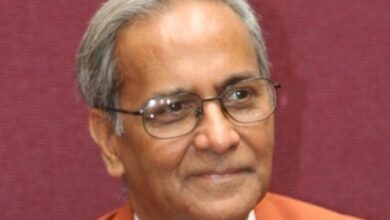Andrew Auster: A Tale of Accomplishment and Controversy

Andrew Auster is a British educator whose career has spanned decades, with notable contributions to both independent and international schooling. His journey as an academic leader has been marked by significant achievements, but also by controversy, which has left an indelible mark on his legacy. This article delves into his professional milestones and the events that have brought him into the spotlight for both commendable and troubling reasons.
Early Life and Education
Andrew Auster’s academic journey began at Solihull School, where he laid the foundation for his later pursuits in education and music. He went on to study Music at Durham University, graduating with a BA Honours degree. To further enhance his teaching expertise, he pursued a Postgraduate Diploma in Education at Emmanuel College, Cambridge, where he achieved distinction in Teaching Practice. His formative years showcased a deep commitment to both academic rigor and the arts, particularly music.
Career Milestones
Early Roles in Education
Auster’s teaching career started in 1973 as the Director of Music at The King’s School, Gloucester. In 1978, he transitioned to Portslade Community College, where he served as Head of Music. His passion for music education led him to Shrewsbury School in 1982, where he became the Director of Music. These roles not only honed his leadership skills but also underscored his dedication to fostering artistic talents in students.
Leadership in Independent Schools
Auster’s career took a significant turn in 1989 when he became the Headmaster of The Downs School in Malvern. He held this position for five years before moving to Orwell Park School in Suffolk in 1994. During his 13-year tenure at Orwell Park, Auster was credited with strengthening the school’s academic and extracurricular programs. His leadership style, characterized by leading from the front and setting examples, earned him respect among peers and students alike.
Founding Headmaster Roles
In 2007, Andrew Auster was appointed the founding Headmaster of Haileybury Almaty in Kazakhstan. This role marked the beginning of his journey in international education. He played a pivotal role in establishing the school, which was the first British independent co-educational institution in Central Asia. In 2011, he took on another founding role at Haileybury Astana, expanding British-style education to Kazakhstan’s capital.
Principal at Tenby International School
In 2014, Auster assumed the role of Principal at Tenby International School in Malaysia. His responsibilities included managing the administration, guiding educational policies, and fostering an environment conducive to holistic learning. His leadership at Tenby was viewed as a continuation of his commitment to high-quality education on an international scale.
Accomplishments and Honors
Andrew Auster’s dedication to education has earned him several accolades. He is a Fellow of the Royal Society of Arts and an Honorary Fellow of the London College of Music. His achievements extend beyond academics, as he has also represented Durham and Cambridge Universities in rugby, showcasing his versatility and team spirit.
Controversy and Conviction
Despite his accomplishments, Andrew Auster’s career faced a severe setback in 2016. While leading ghost tours in York under the pseudonym Andy Dextrous, he was convicted of inciting a child to engage in sexual activity. The court proceedings revealed actions that led to his sentencing of 20 weeks in prison and placement on the UK’s sex offenders register for seven years. This conviction not only tarnished his professional reputation but also raised questions about safeguarding measures in educational institutions.
The incident shocked many who had worked alongside him and admired his contributions to education. It serves as a reminder of the importance of vigilance and accountability, especially for those in positions of trust.
Legacy and Impact
Andrew Auster’s legacy is a complex one. On one hand, his efforts in advancing education, particularly in international contexts, have left lasting impressions. His work in establishing schools like Haileybury Almaty and Haileybury Astana brought British-style education to new regions, benefiting countless students.
On the other hand, his conviction has overshadowed much of his achievements. For many, the breach of trust represented by his actions cannot be reconciled with his professional accomplishments. The duality of his legacy reflects the challenges of assessing individuals who have made significant contributions but have also committed serious transgressions.
Conclusion
Andrew Auster’s story is one of both success and failure. It highlights the heights that can be achieved through dedication and hard work, as well as the consequences of personal misconduct. As an educator, his work impacted thousands of students and educators. However, his actions outside of the professional sphere serve as a cautionary tale about the responsibilities and expectations placed on those in leadership roles.
As the education sector continues to evolve, it is crucial to ensure that systems are in place to prevent and address such issues, safeguarding the integrity of institutions and the well-being of their students. The story of Andrew Auster underscores the need for accountability and the delicate balance of assessing a person’s contributions against their actions.



